Wash the dishes right away
This is the simplest rule. To prevent the dishes from accumulating uphill, you just need to not create them. Timely washing will help to avoid the accumulation of dishes. Drank tea - rinse the mug after you. Eat soup - wash the plate.
Such a simple rule will get rid of the daily routine. And the remnants of food will not have time to stick to the dishes and cutlery, because it is worth leaving them for at least one day and instead of a slight movement with a sponge, you will have to scrape off the dirt with difficulty. And so the only place where a mountain of plates with stains will await you will be your nightmare.
Get rid of food leftovers
Train yourself to either finish the food, leaving the plate clean, or throw the leftovers in the trash can. This will solve several problems at once.
First, as already mentioned, food leftovers will not stick to the dishes, without becoming another barrier to cleanliness and order in your kitchen. And secondly, food leftovers will not clog the pipeline, forming a blockage.
So to the unwashed dishes, you will also have to add cleaning of the drain pipes under the sink. And this can take much more time and effort.
Soak the dishes
If, nevertheless, it was not possible to wash the dishes in a timely manner, soak them. Using a container that can hold all the kitchen utensils, or simply blocking the drain in the sink, draw in water, fill in the required amount of detergent and immerse the dishes.
This will not leave the pots and pans perfectly clean, but will make the washing process much easier later on. Fat and food residues will not stick to the dishes and will only have to be rinsed with water.
Use sponges and brushes
Avoid using rags and use foam sponges. They save detergent due to their absorbent effect and clean dishes much better.
Don't feel sorry for them! As soon as the sponge begins to wear off or absorb grease, replace it. Burned residues that do not want to leave the dishes, even after soaking, are best removed with an aluminum brush.
Save water
The more dishes have accumulated in the sink, the more water will be used to wash it. And these are extra "cubes" in your payment system, for which you will have to pay.
To avoid this, it is better to immediately draw water into the basin, and rub the surface of all dirty spoons, mugs, plates and other things with a sponge and detergent. After that, you can start rinsing.
Sorting dishes
A variety of kitchen utensils probably accumulate in the sink, after completely different manipulations with it. There can be a greasy frying pan, and mugs with stains, and cutlery in the leftover garnish, and much more.
You should not start washing everything in a row, it is better to sort by type of contamination and clean sequentially. Almost clean cutlery is washed immediately. Then - mugs and glasses. Greasy plates and pans last.
Use quality detergents
It is worth starting with the fact that, in principle, you need to wash the dishes with detergents. Water alone, cold or hot, will not cope. Her help is only enough to wash the crumbs off the already clean plate.
Stubborn food residues or, even worse, greasy stains cannot be dealt with without a good detergent. Don't skimp on cleaning products. A quality product foams well and easily removes food debris and grease stains.
Using this simple set of rules, you can make your life much easier and turn dishwashing from a difficult task into a pleasant chore. After all, everything becomes easier if you approach it wisely. Use these rules, and then the dishes will delight you with their cleanliness, shine and order in the kitchen!

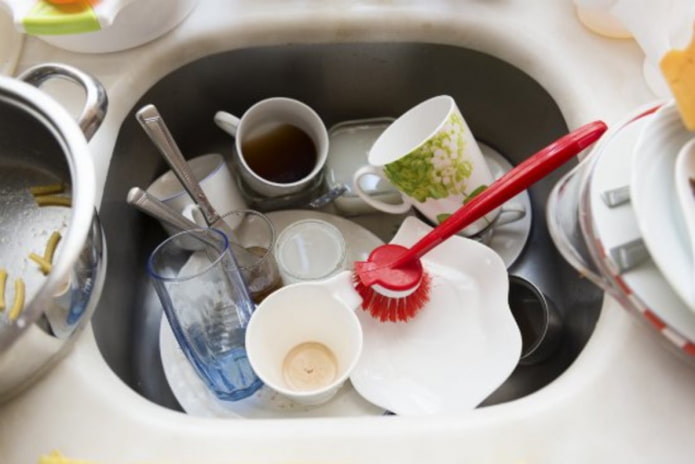
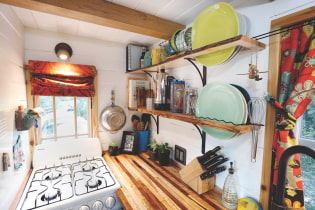 10 practical tips for arranging a small kitchen in the country
10 practical tips for arranging a small kitchen in the country
 12 simple ideas for a small garden that will make it visually spacious
12 simple ideas for a small garden that will make it visually spacious
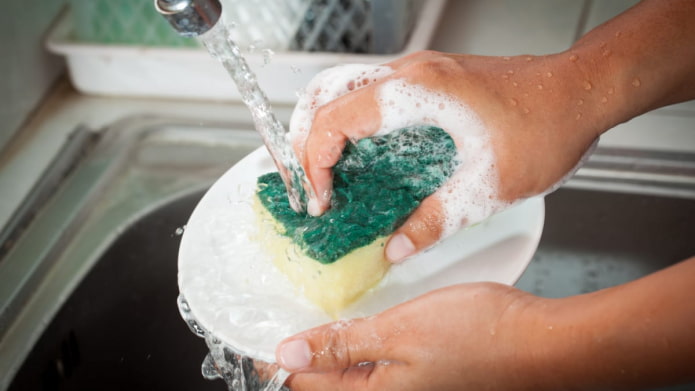
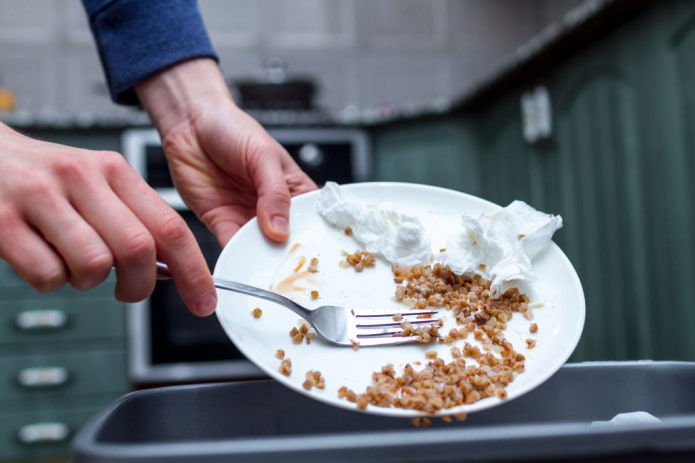
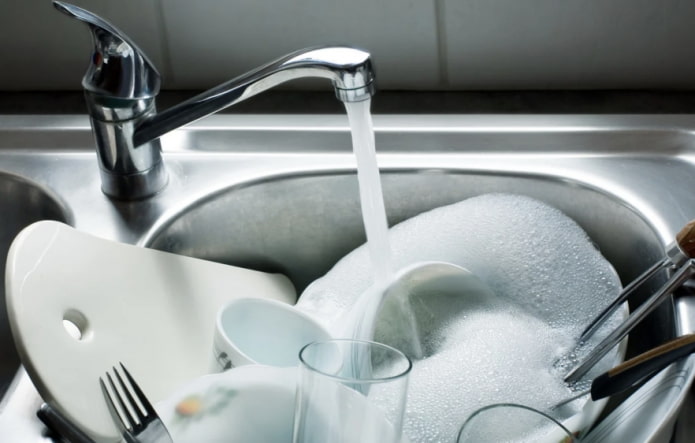
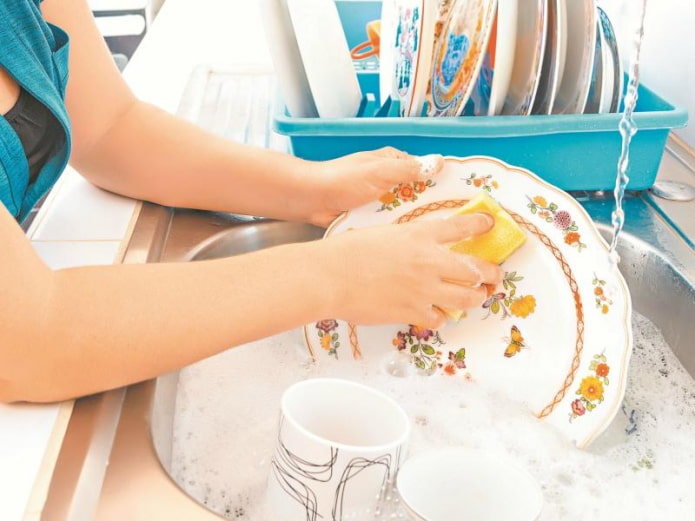
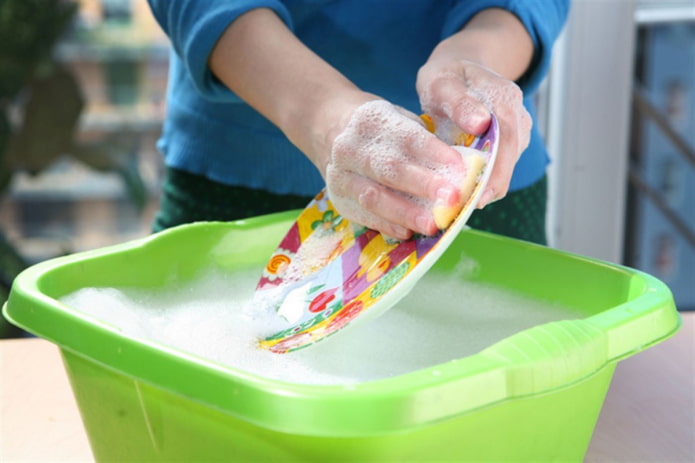
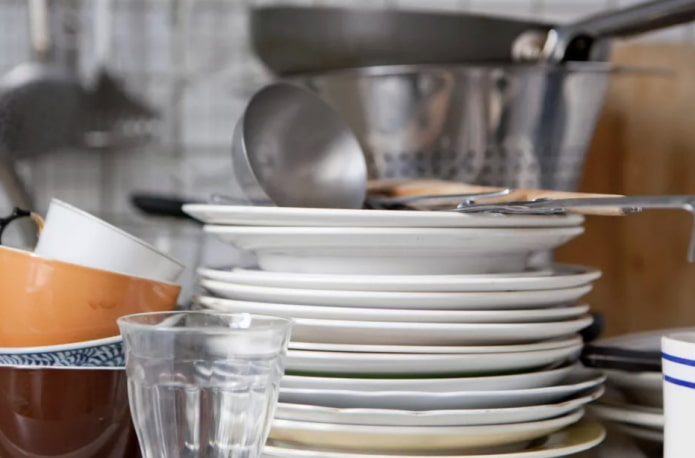
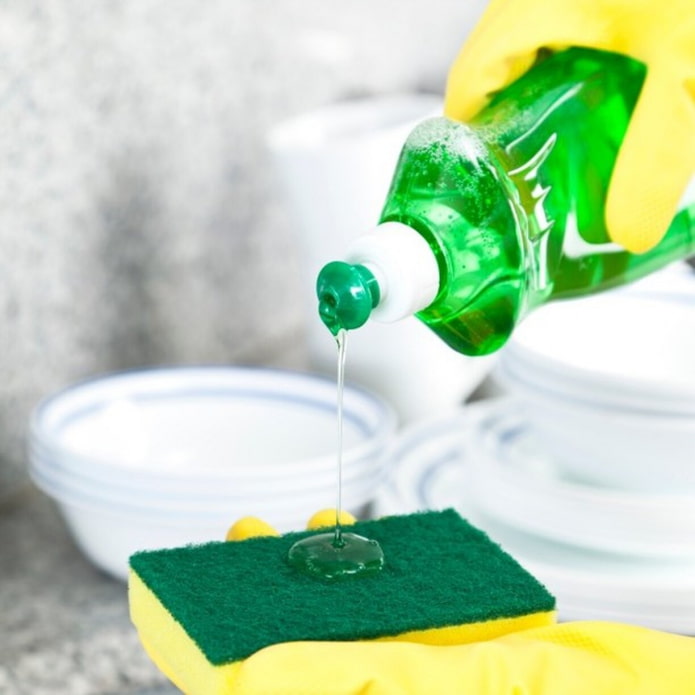
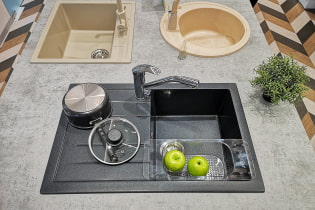 How to choose the color of your kitchen sink?
How to choose the color of your kitchen sink? White kitchen set: features of choice, combination, 70 photos in the interior
White kitchen set: features of choice, combination, 70 photos in the interior Black set in the interior in the kitchen: design, choice of wallpaper, 90 photos
Black set in the interior in the kitchen: design, choice of wallpaper, 90 photos How to choose curtains for the kitchen and not regret it? - we understand all the nuances
How to choose curtains for the kitchen and not regret it? - we understand all the nuances Design of a white kitchen with a black countertop: 80 best ideas, photos in the interior
Design of a white kitchen with a black countertop: 80 best ideas, photos in the interior Kitchen design with green wallpaper: 55 modern photos in the interior
Kitchen design with green wallpaper: 55 modern photos in the interior